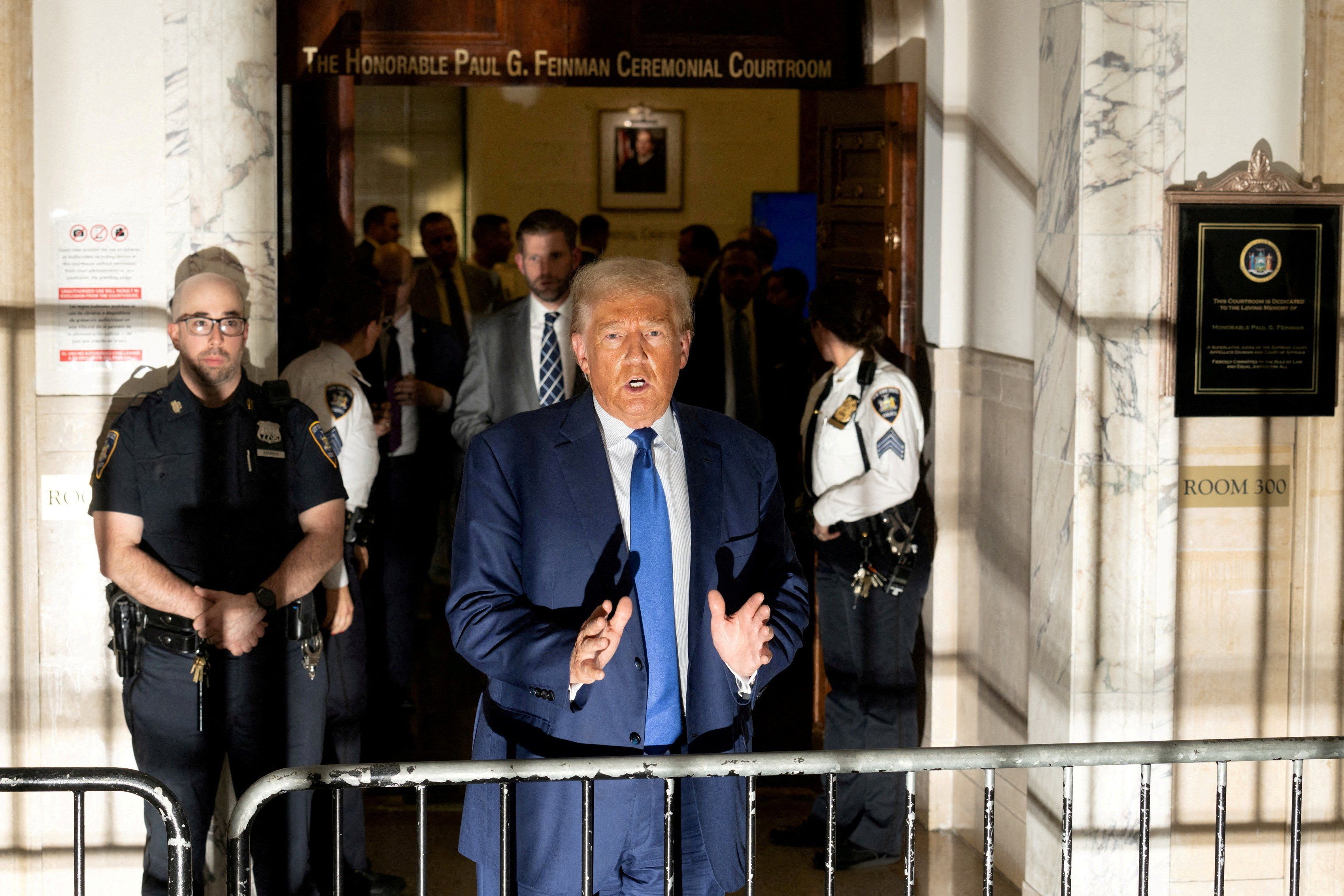We know there are too many Trump trials to keep track of, so we’ll keep our take on the Colorado case — seeking to bar the former president from the 2024 ballot under Section 3 of the 14th Amendment — short and sweet: It’s unlikely to work.
Six Republican and unaffiliated Colorado voters, backed by a liberal watchdog group, are seeking to block Trump from Colorado’s presidential ballot in a five-day trial this week. So far, the plaintiffs have presented evidence of Trump’s relationship with far-right extremists, but they will struggle to make a case, given the wording and history of Section 3.
Section 3 prohibits individuals who have “engaged in insurrection or rebellion” against the United States from holding public office. The statute’s wording raises thorny legal questions whose answers have partisan implications. To name a few: What constitutes an “insurrection?” Can the courts apply the statute to a former president – even if doing so would disqualify a major party’s candidate?
Section 3 was put in place to stop former Confederates from taking over the government, which, according to Eurasia Group analyst Noah Daponte-Smith, may have been made essentially void because of Congressional amnesties for former Confederates in the late 19th century.
If the case does result in a Trump ballot ban in Colorado, it would likely go to the Supreme Court, which would shy away from disqualifying a major party’s presidential candidate. Not to mention, Daponte-Smith adds, that “it is hard to see two of the court’s six conservatives siding with the three liberal justices on a question with such obvious partisan implications.”
So the Supreme Court would likely leave it up to voters to decide whether Trump’s name appears on the ballot. That said, Daponte-Smith warns that “the very existence of cases attempting to bar Trump from the ballot will feed into Trump’s narrative that Democrats are trying to rig the election against him.”
